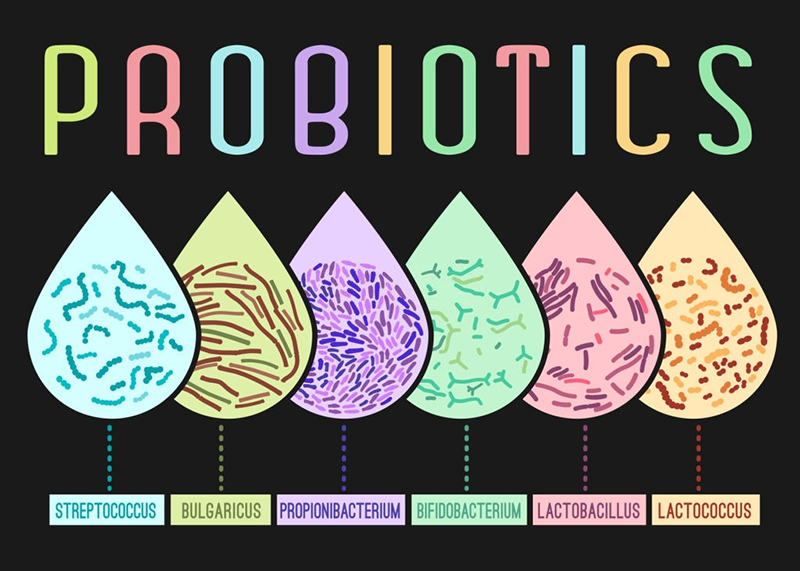Probiotics and prebiotics are two terms that are often used interchangeably when it comes to gut health. However, these two are quite different, and both are equally essential for maintaining a healthy gut. In this blog post, we will discuss the difference between probiotics and prebiotics and how both can help improve your gut health.
What Are Probiotics?
Probiotics are live bacteria and yeast that are beneficial to our health, especially our digestive system. These microorganisms can help break down and absorb nutrients from the food we eat, fight harmful bacteria in the gut, and boost our immune system. Probiotics can naturally occur in our gut or can be consumed in the form of supplements or fermented foods like yogurt, sauerkraut, and kimchi.
Some of the most common strains of probiotics include:
- Lactobacillus acidophilus
- Bifidobacterium bifidum
- Streptococcus thermophilus
What Are Prebiotics?
Prebiotics, on the other hand, are not living microorganisms but rather a type of fiber that humans cannot digest. Prebiotics can be found in foods like garlic, onions, asparagus, bananas, and whole grains.
Prebiotics are essential for our gut health as they provide food for the probiotics in our gut. Probiotics cannot survive without a constant supply of prebiotics, and consuming prebiotics can help increase the number of beneficial bacteria in our gut.
The Difference Between Probiotics and Prebiotics
While probiotics and prebiotics work hand in hand to promote gut health, there are some fundamental differences between these two. Probiotics are live microorganisms that can provide numerous health benefits, while prebiotics are non-digestible fibers that feed the friendly bacteria already present in our gut.
Here are a few more key differences between probiotics and prebiotics:
- Probiotics are living microorganisms, while prebiotics are non-living fibers.
- Probiotics can be found in certain foods or taken as a supplement, while prebiotics are found in specific foods.
- Probiotics provide direct health benefits, while prebiotics indirectly promote gut health.
- Probiotics are strain-specific, while prebiotics are not.
The Importance of Probiotics and Prebiotics for Gut Health
A healthy gut is essential for maintaining overall health, and the balance of good and bad bacteria in our gut plays a crucial role in gut health. Consuming probiotics and prebiotics can help promote the growth of beneficial bacteria in our gut, reduce inflammation, and improve digestion.
Some of the benefits of consuming probiotics and prebiotics include:
- Reducing the risk of diarrhea, constipation, and other digestive problems.
- Strengthening the immune system.
- Reducing inflammation in the gut.
- Improving nutrient absorption.
- Reducing the risk of certain diseases, including inflammatory bowel disease (IBD), irritable bowel syndrome (IBS), and colorectal cancer.
Conclusion
Probiotics and prebiotics are both essential for maintaining a healthy gut, and consuming both can help promote digestion, reduce inflammation, and strengthen the immune system. While probiotics are living microorganisms that can provide direct health benefits, prebiotics are non-digestible fibers that feed the friendly bacteria already present in our gut.
Incorporating probiotic-rich foods like yogurt, kefir, and kombucha, as well as consuming prebiotic foods like garlic, onions, and asparagus, can help promote gut health and improve overall health.







